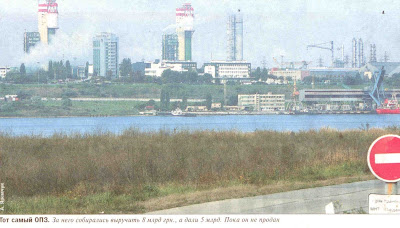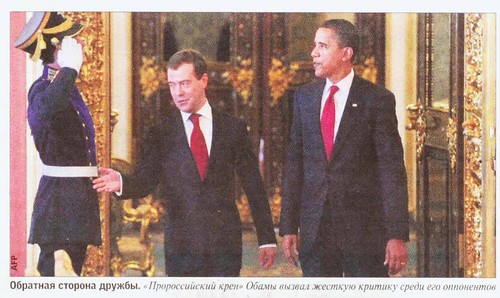Yes, the Russian baths are good for business. Did you know that? If not, then keep it in mind next time when you have a business trip to Ukraine or Russia. Here is why the Russian baths are good for a business.
A dismal science, as economics is often referred to, often focuses on two basic mechanism of human behavior - signaling and screening. For instance, your resume serves as a platform for both signaling and screening. As a job seeker, you use a resume to signal your quality to a potential employer. If you are an employer, you use an applicant's resume to screen for his or her qualifications. Both signaling and screening offer a cost-effective way of match-making in the job market. These concepts can also be applied to other aspects of human lives. Think about dating!
But we live in a world of imperfect information so it can be difficult to get a perfect match each time. So both signaling and screening are also associated with a couple of side-effects such as moral hazard and adverse selection. In other words, you always risk of running into a wolf under a sheep's skin that is a so-called "ship-skin effect" popularized by the labor economists and vice versa. So you got the point. Now let's talk about the Russian baths!
In my undergrad (i.e. in Ukraine) I had a professor who taught Principles of Investment Banking. He was actually one of the first investment bankers in Ukraine. And I remember him complaining a lot about spending 90% of his time in the Russian baths. He said that it helped to check a credibility of their investors. I had no clue what he talked about. I just thought that doing business in a sauna was a fashionable trend in the 1990s.
Well, a sauna has obvious health-related attractions. It improves your immune system and clears your pores. All nations use the same concept of sweat lodge while they just call it different names: the Turkish baths, the Korean baths, the Finnish sauna, and the Russian baths. But it seems that the Russian baths also provided a unique platform for signaling and screening for entrepreneurs in the former Soviet countries, such as Russia and Ukraine, in the tumultuous 1990s.
How did it work? Well, it's easier to picture this if you've seen a movie Eastern Promises staring Vigo Mortensen as a Russian mobster. Russian or Ukrainian (i.e. post-Soviet) gangsters have a very distinctive subculture of prisoner's tattoos. These tattoos are very informative. They can tell a whole life path of a gangster starting from his first incarceration and up to a present moment. A tattoo that pictures Eastern Orthodox Christian church usually tells you how long a gangster was in prison. A tattoo of a cougar on a shoulder will tell you that you are facing a criminal who was in prison for a robbery and assault. Other tattoos can tell you a rank of a gangster in a hierarchy of underworld (i.e. wise guy or made), his responsibilities in a gang (i.e. con artist or racketeer), his criminal record, his religion, his ethnicity, etc. If the Russian mafia can be proud of something, its subculture of prisoner's tattoos must be a source of its pride.
as a Russian mobster. Russian or Ukrainian (i.e. post-Soviet) gangsters have a very distinctive subculture of prisoner's tattoos. These tattoos are very informative. They can tell a whole life path of a gangster starting from his first incarceration and up to a present moment. A tattoo that pictures Eastern Orthodox Christian church usually tells you how long a gangster was in prison. A tattoo of a cougar on a shoulder will tell you that you are facing a criminal who was in prison for a robbery and assault. Other tattoos can tell you a rank of a gangster in a hierarchy of underworld (i.e. wise guy or made), his responsibilities in a gang (i.e. con artist or racketeer), his criminal record, his religion, his ethnicity, etc. If the Russian mafia can be proud of something, its subculture of prisoner's tattoos must be a source of its pride.
A main goal of the prisoner's tattoo is to introduce a gangster without much to say. Talk is cheap, right? But who would think that the Russian businessmen could utilize the knowledge of prisoner's tattoo as an effective mechanism of screening and signaling. Since it was impossible to have a proper credit check in the sketchy 1990s, the potential business partners would have a meeting in a sauna where you would be almost naked. Do you see where I am getting? If you had prisoner's tattoos, you could not hide them. Of course, the meeting would require a presence of an expert in prisoner's tattoos who could be either a cop or a gangster. Once you've gone to the Russian bath, the credit check is done. Was it cost-effective? Hell, yes.
What about signaling? Ceteris paribus, a businessman needed to collect a debt from his irresponsible business partner in the shady 1990s. Then he would hire so-called "debt-coll ecting agents" who would invite a debtor to the Russian baths. A debtor who would see the prisoner's tattoos of the debt-collectors in a sauna would be more eager to pay back his debt. Here's ECON 101 for Russia, Ukraine and other former Soviet countries in the early 1990s. Do you still think that economics is a dismal science? Think about it next time when you have a visit to the Finnish sauna or the Russian baths.














